Abstract
For pharmacy students to provide optimal and complete pharmaceutical care, it is vital that they develop drug information skills. At the University of Southern California, the School of Pharmacy and the Norris Medical Library have established an interactive educational program. Library programs support an increasingly complex progression of information retrieval, evaluation, organization, application, and communication. Librarians are systematically involved in all four years of coursework for the doctor of pharmacy degree. Training and experience in computer literacy and online database searching are included in the library components. Description of the educational program covers its beginning a decade ago, current status, and future in an environment of rapidly advancing technology.
Full text
PDF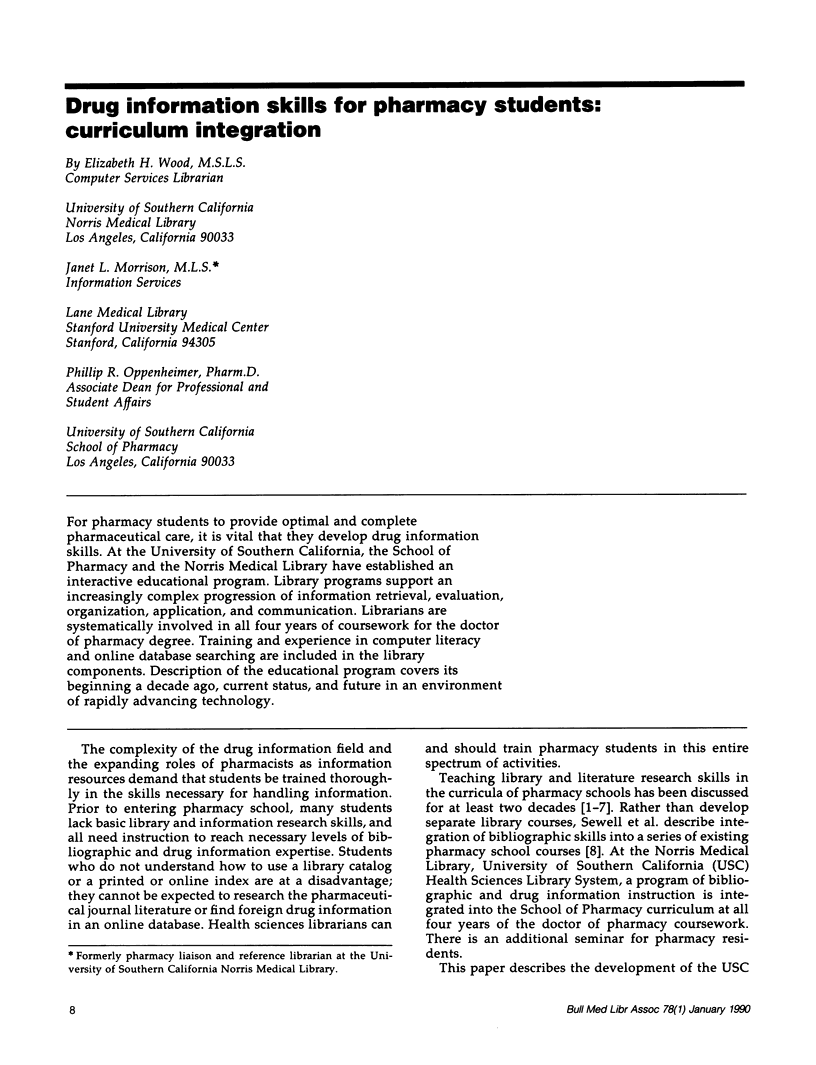
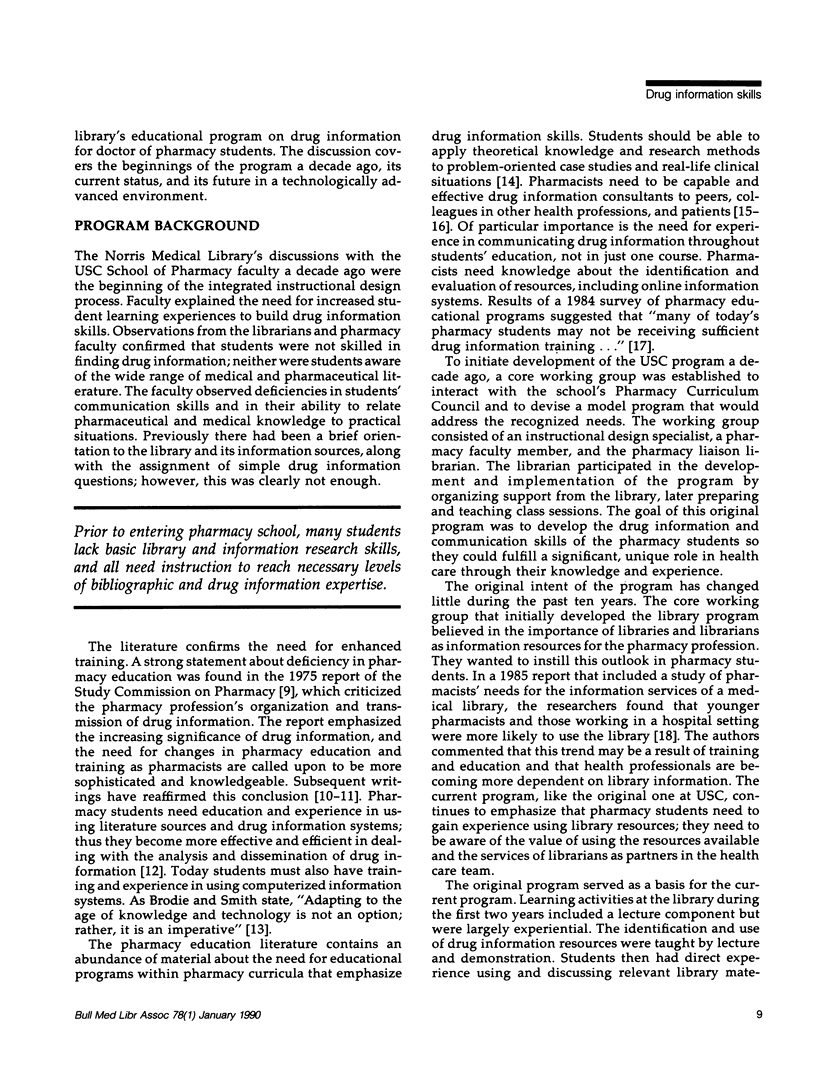
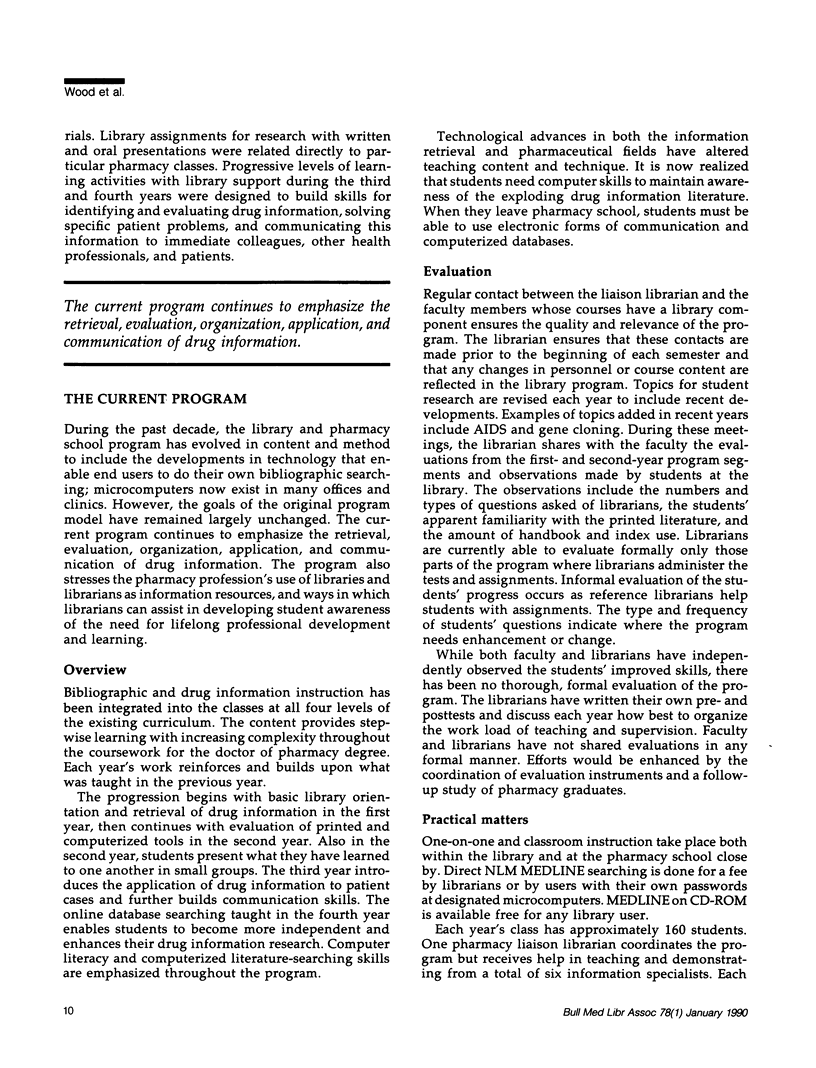
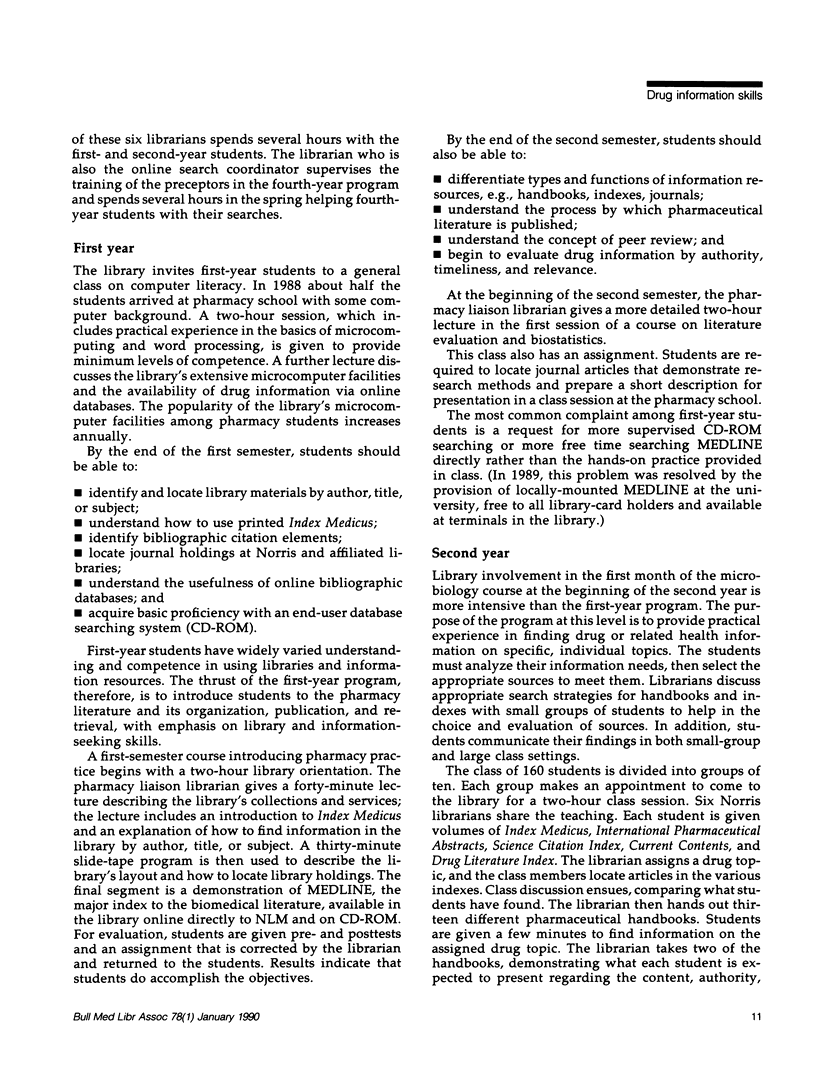
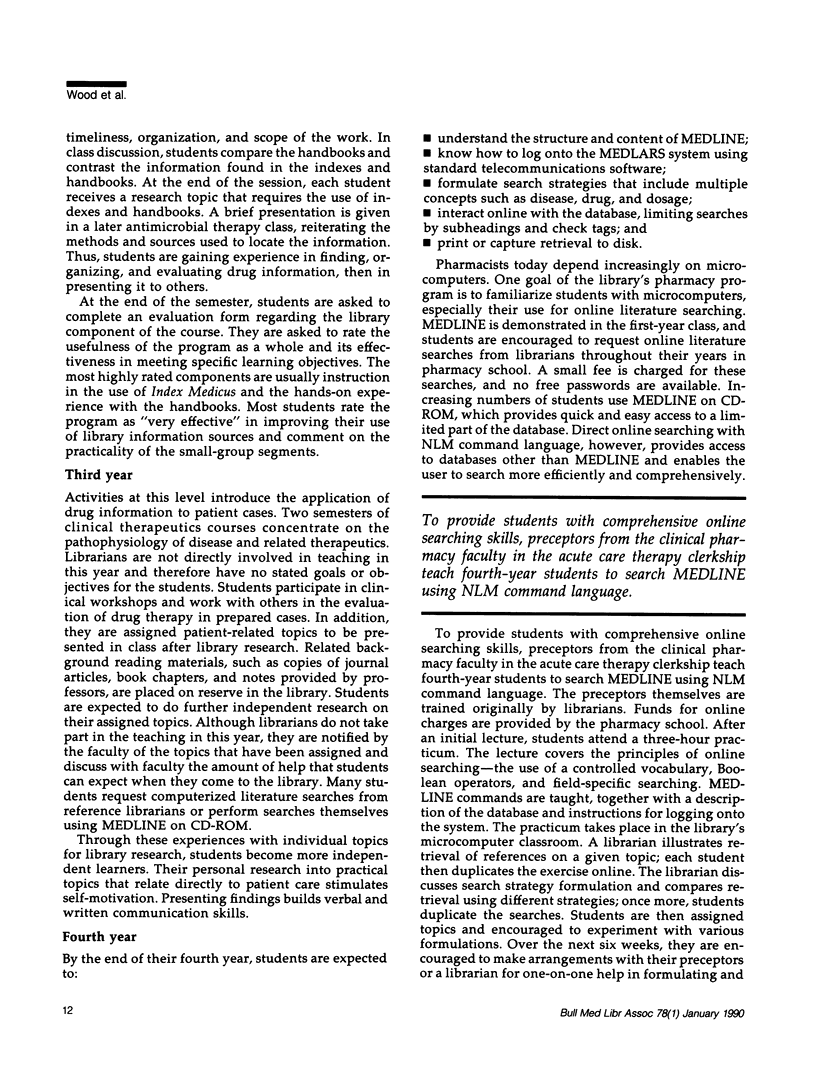
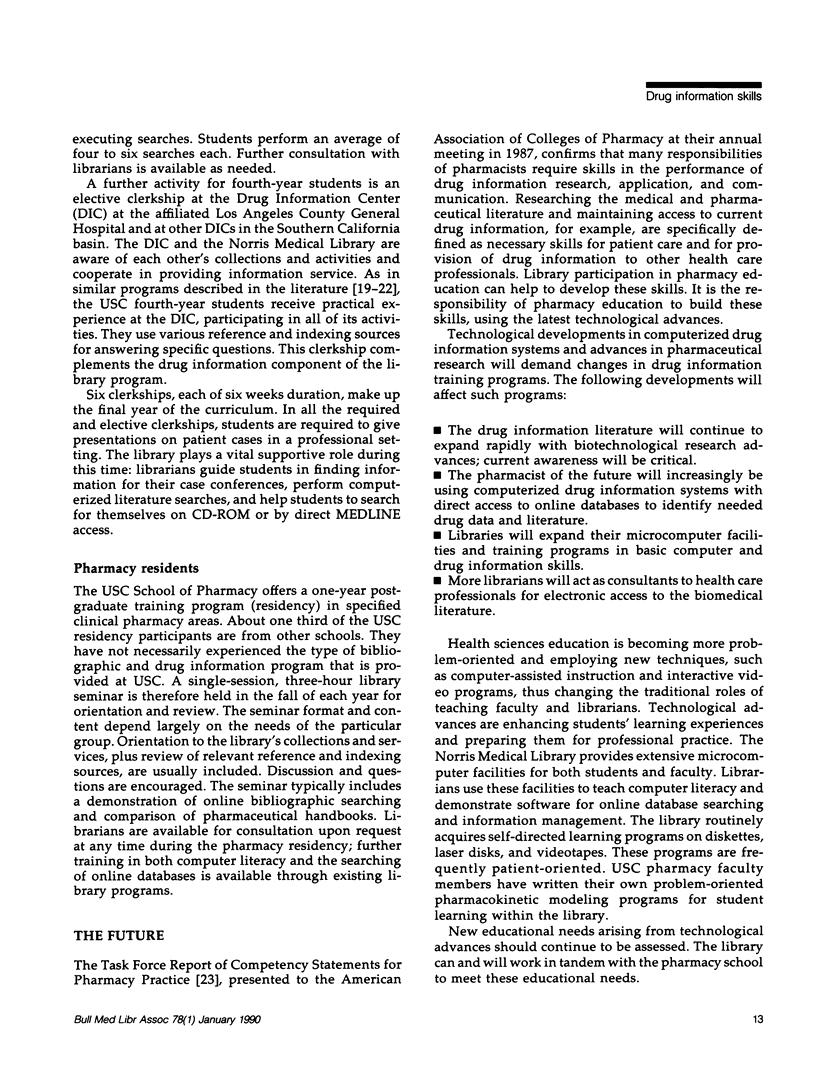
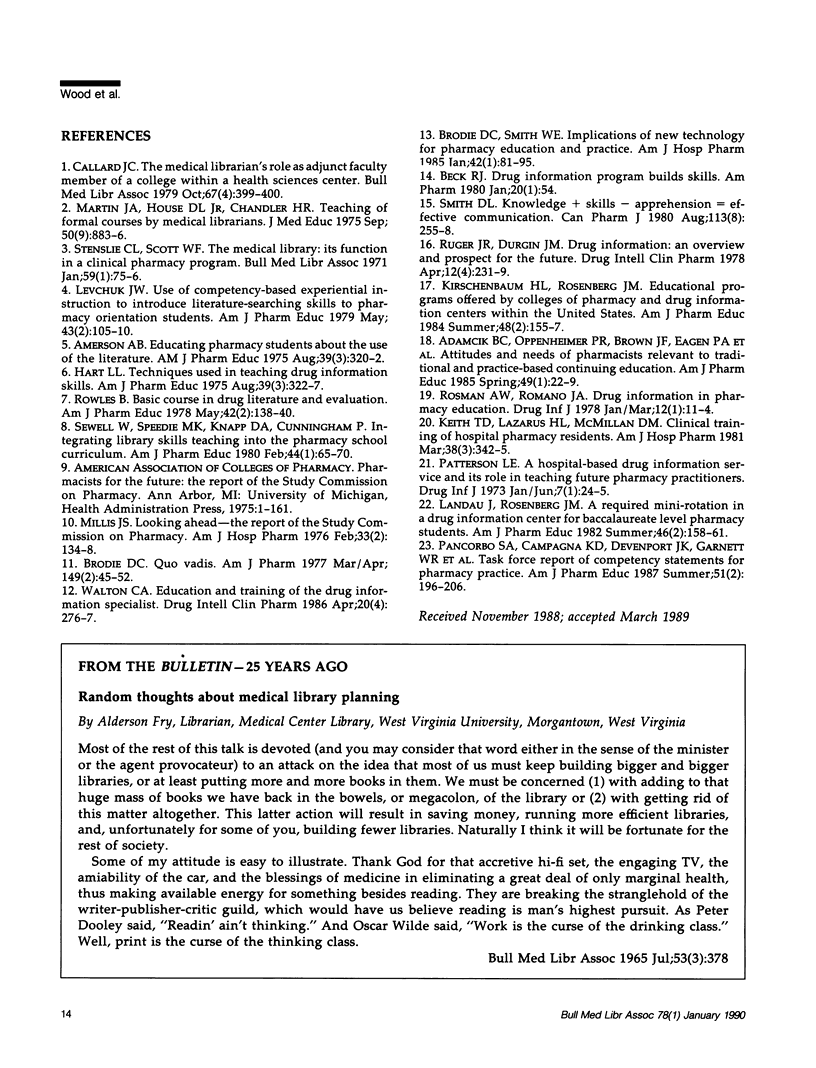
Selected References
These references are in PubMed. This may not be the complete list of references from this article.
- Amerson A. B. Educating pharmacy students about the use of the literature. Am J Pharm Educ. 1975 Aug;39(3):320–322. [PubMed] [Google Scholar]
- Beck R. J. Drug information program builds skills. Am Pharm. 1980 Jan;NS20(1):54–54. doi: 10.1016/s0160-3450(15)32924-x. [DOI] [PubMed] [Google Scholar]
- Brodie D. C. "Quo vadis". Am J Pharm Sci Support Public Health. 1977 Mar-Apr;149(2):45–52. [PubMed] [Google Scholar]
- Brodie D. C., Smith W. E. Implications of new technology for pharmacy education and practice. Am J Hosp Pharm. 1985 Jan;42(1):81–95. [PubMed] [Google Scholar]
- Callard J. C. The medical librarian's role as adjunct faculty member of a college within a health sciences center. Bull Med Libr Assoc. 1979 Oct;67(4):399–400. [PMC free article] [PubMed] [Google Scholar]
- Hart L. L. Techniques used in teaching drug information skills. Am J Pharm Educ. 1975 Aug;39(3):322–327. [PubMed] [Google Scholar]
- Keith T. D., Lazarus H. L., McMillan D. M. Clinical training of hospital pharmacy residents. Am J Hosp Pharm. 1981 Mar;38(3):342–345. [PubMed] [Google Scholar]
- Kirschenbaum H. L., Rosenberg J. M. Educational programs offered by colleges of pharmacy and drug information centers within the United States. Am J Pharm Educ. 1984 Summer;48(2):155–157. [PubMed] [Google Scholar]
- Martin J. A., House D. L., Jr, Chandler H. R. Teaching of formal courses by medical librarians. J Med Educ. 1975 Sep;50(9):883–886. doi: 10.1097/00001888-197509000-00006. [DOI] [PubMed] [Google Scholar]
- Millis J. S. Looking ahead--the report of the Study Commission on Pharmacy. Am J Hosp Pharm. 1976 Feb;33(2):134–138. [PubMed] [Google Scholar]
- Ruger J. R., Durgin J. M. Drug information: an overview and prospect for the future. Drug Intell Clin Pharm. 1978 Apr;12(4):231–239. doi: 10.1177/106002807801200405. [DOI] [PubMed] [Google Scholar]
- Stenslie C. L., Scott W. F. The medical library: its function in a clinical pharmacy program. Bull Med Libr Assoc. 1971 Jan;59(1):75–76. [PMC free article] [PubMed] [Google Scholar]
- Walton C. A. Education and training of the drug information specialist. Drug Intell Clin Pharm. 1986 Apr;20(4):276–277. doi: 10.1177/106002808602000408. [DOI] [PubMed] [Google Scholar]



